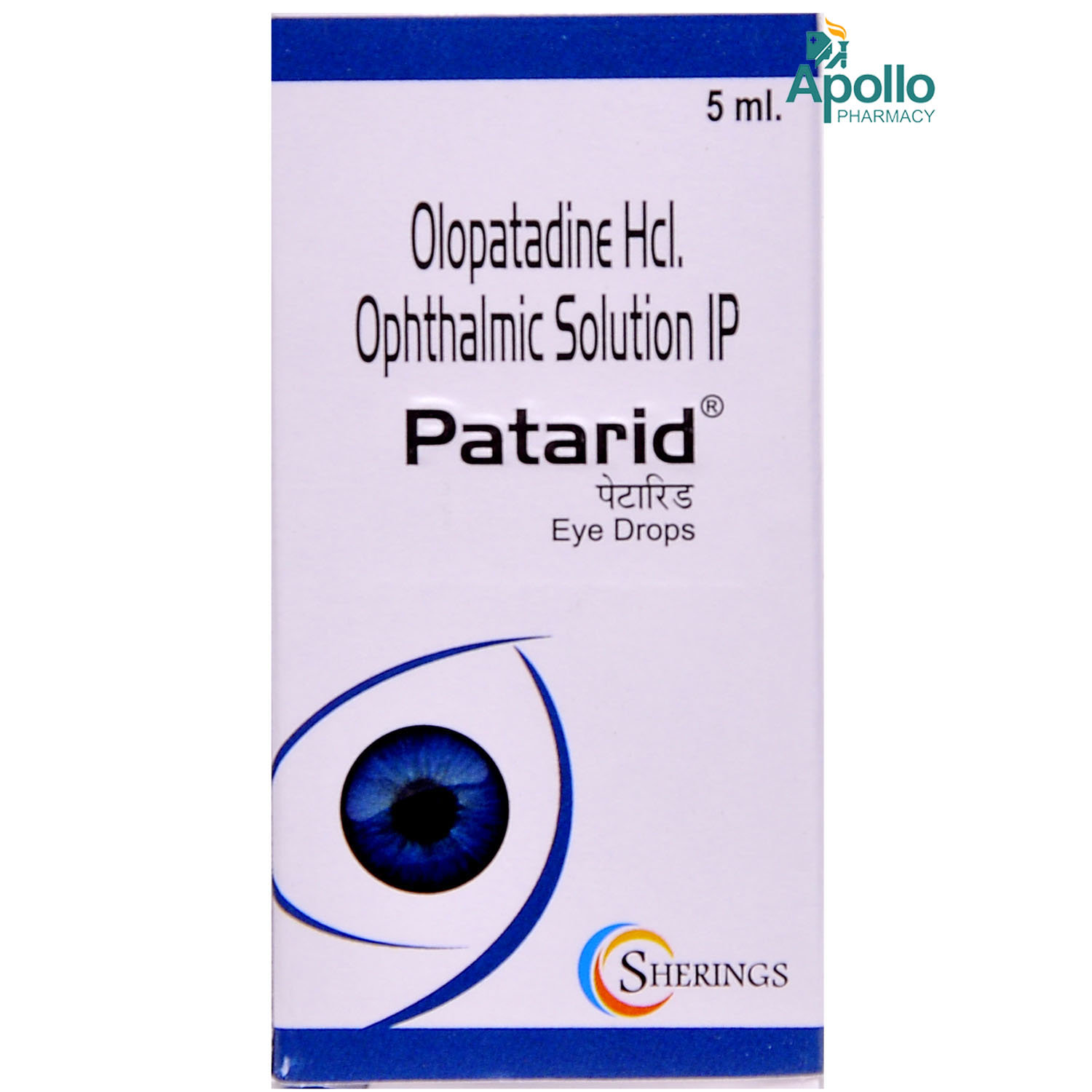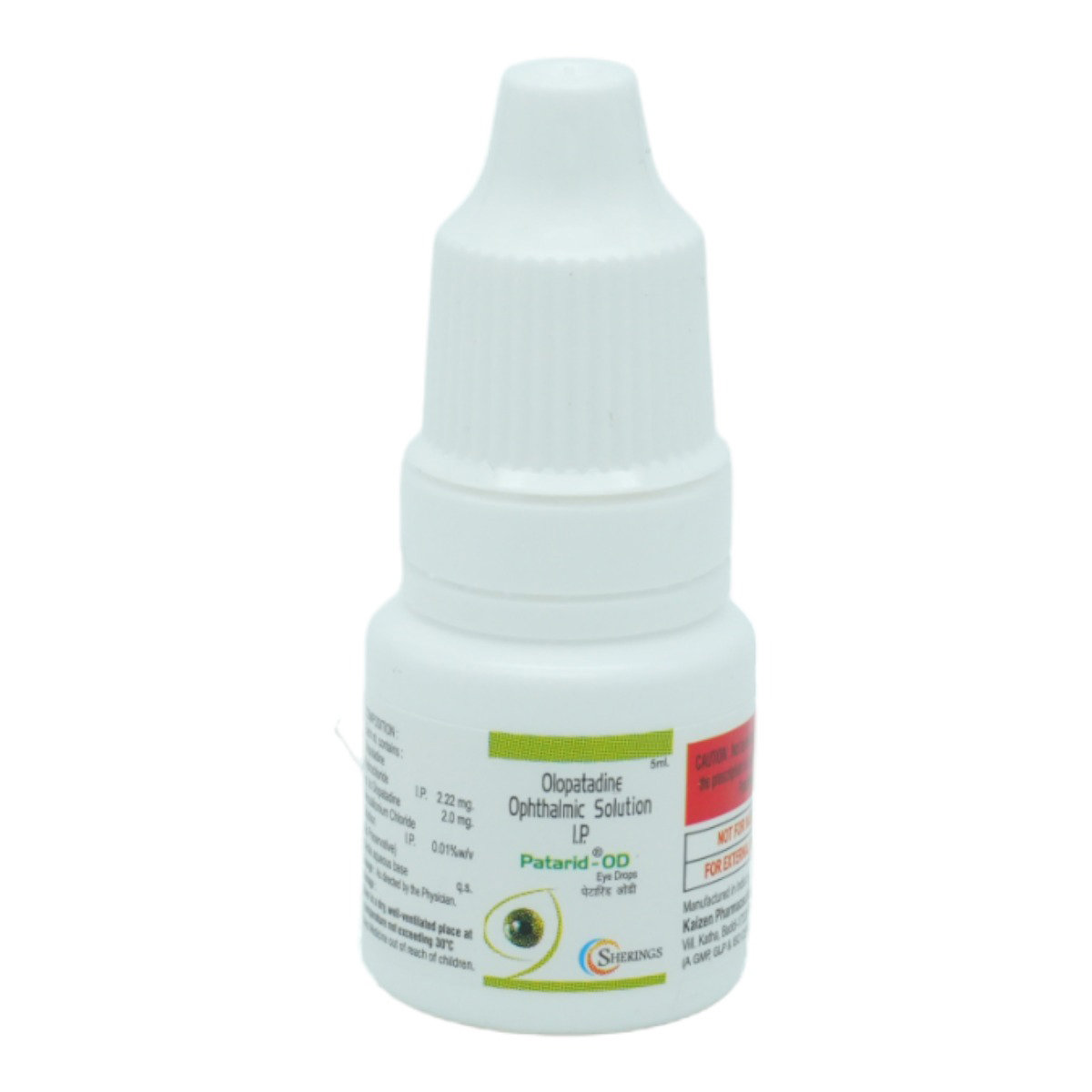Olopatadine
About Olopatadine
Olopatadine belongs to the 'antihistamine' class of drugs, primarily used to treat signs and symptoms of seasonal allergic conjunctivitis. Olopatadine is also used to treat eye itching or redness caused by pollen, ragweed, grass, animal hair, or dander. Allergic conjunctivitis is an inflammation of the conjunctiva (the clear tissue that covers the white part of the eye and the inside of the eyelids) caused by an allergic reaction.
Olopatadine contains Olopatadine, which inhibits the release of histamine (chemical messengers released due to an allergic response in the body) from mast cells. Thereby relieves itching, burning, redness, and watering in the eyes caused by allergic conjunctivitis.
Your doctor will advise on how often you need to use Olopatadine based on your medical condition. Some common side effects of Olopatadine include eye pain, eye irritation, headache, blurred vision, burning/stinging/redness/dryness of the eye, eyelid swelling, and eye discomfort. These side effects do not require medical attention and gradually resolve over time. If any of the side effects persist or worsen, consult a doctor.
Let your doctor know if you are allergic to Olopatadine or any other medications. Avoid contact of dispensing container with the eye, eyelids, fingers, and other surfaces to prevent contamination. Pregnant and breastfeeding women should consult their doctor before starting Olopatadine. This medicine may cause temporary blurred vision; hence drive only when you are alert and have clear vision. Olopatadine is not recommended for children under three years of age.
Uses of Olopatadine
Medicinal Benefits
Olopatadine contains Olopatadine, an antihistamine drug. It treats signs and symptoms of seasonal allergic conjunctivitis. It relieves itching, burning, redness, and watering in the eyes caused by allergic conjunctivitis. It works by inhibiting the release of histamine (chemical that causes allergic symptoms like itchy eyes) from mast cells.
Directions for Use
Storage
Side Effects of Olopatadine
- Eye pain
- Eye irritation
- Headache
- Blurred vision
- Burning/stinging/redness/dryness of the eye
- Eyelid swelling
- Eye discomfort
Drug Warnings
Inform your doctor if you have any allergic reactions to Olopatadine before starting Olopatadine. Avoid touching the dropper with bare hands or taking it closer to the eyelids while administering drops since it contaminates the solution. If you wear contact lenses, remove them while administering the medicine into the eye. It is advised to check with your doctor before using Olopatadine if you are pregnant or breastfeeding. Avoid driving or operating machines since Olopatadine may cause temporary blurred vision for a while. Olopatadine is not recommended for children below three years.
Drug Interactions
Drug-Drug Interaction: Olopatadine may interact with antidepressants (bupropion), dementia medicines (donepezil), and drugs that treat excessive sleepiness in narcolepsy (pitolisant).
Drug-Food Interaction: No interactions were found.
Drug-Disease Interaction: Brief your doctor if you have a medical history of eye infection or injury.
Drug-Drug Interactions Checker List:
Safety Advice

Alcohol
cautionThere is limited information on how alcohol consumption affects Olopatadine. Please consult your doctor.

Pregnancy
cautionPlease consult your doctor if you are planning to become pregnant or already pregnant before starting Olopatadine.

Breast Feeding
unsafeOlopatadine is not recommended for breastfeeding women unless it is necessary. Please consult your doctor if you are breastfeeding.

Driving
cautionOlopatadine may cause side effects like blurry vision, affecting your driving ability. Do not drive or operate machinery in such cases. Drive only when you are alert and have clear vision.

Liver
cautionLet your doctor know if you have any history of liver diseases. Your doctor will weigh the benefits and potential risks before prescribing Olopatadine.

Kidney
cautionLet your doctor know if you have any history of kidney diseases. Your doctor will weigh the benefits and potential risks before prescribing Olopatadine.

Children
cautionOlopatadine is not recommended for children below three years. The dose may have to be adjusted by your doctor depending upon the condition of the child's disease and age.
Habit Forming
Diet & Lifestyle Advise
- Manage stress, eat healthily, drink plenty of water, exercise regularly, and get plenty of sleep.
- Eat food rich in antioxidants such as berries, spinach, kidney beans, dark chocolate, etc.
- Try to maintain good hygiene to keep your eyes clean and irritant-free.
- Avoid staring at the digital screens for longer durations. Rest your eyes every 20 minutes.
- If you wear contact lenses: Clean and replace contact lenses more often. Never share contact lenses. Always remember to wash your hands before inserting and after removing the contact lens.
- Wash your hands thoroughly and do not touch the dropper before using drops to avoid contamination.
- Know your allergy triggers, such as pollen, dust and other factors.
Patients Concern
Disease/Condition Glossary
Allergic conjunctivitis (eye allergy): Allergic conjunctivitis, also known as eye allergy, is the immune response that occurs when the eye comes in contact with an irritating substance known as an allergen. It is of three types: allergic, infective, and acute/chronic conjunctivitis. Allergens include dust, smoke, dander, mold, or pollen. Eye allergy symptoms include itching, burning sensation, watery eyes, red/pink eyes, scaling around the eyes, and swollen or puffy eyelids. It can be passed from one infected person to another; hence precaution like wearing sunglass or distancing is required in public places.
FAQs
Olopatadine works by inhibiting the release of histamine (chemicals that cause allergic symptoms like itchy eyes) from mast cells, thus relieving symptoms like itching, burning, redness, and watering in the eyes caused by allergic conjunctivitis.
It is advised to remove your contact lens if you are wearing them while administering Olopatadine. Also, remember to wash your hands before and after administering the medicine to avoid contamination.
If you use other eye ointments/drops along with Olopatadine, it is advised to maintain a gap of at least 5-10 minutes after each administration. Also, use eye drops before applying any eye ointment.
Olopatadine can cause temporary blurry vision immediately after applying. Avoid driving and operating machinery in such cases until you feel better. If the effect persists longer, seek medical attention.
Avoid the contact of the dropper or tip with fingers, eyes, and eyelids when using Olopatadine. Topical eye products, when contaminated by patients with eye diseases, may result in eye infections.









